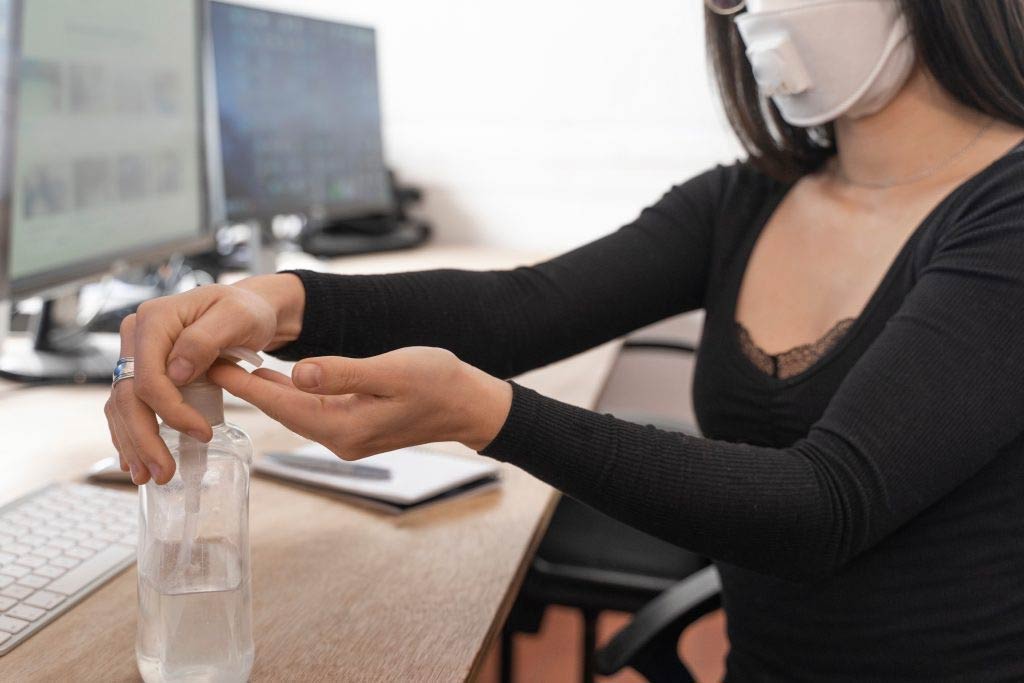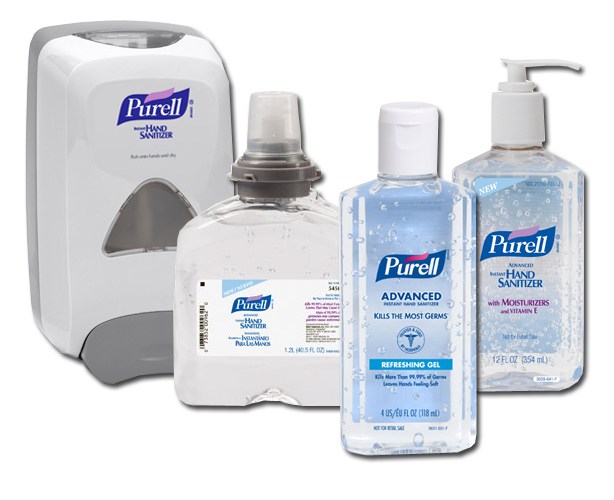
Please choose a body region on the right for you to pin point the problem area of your body.

Shop by Condition

Shop by Brand
 Studies have shown that almost 70 percent of employees come into work even when they are sick. This makes our workplace one of the biggest harboring zones of disease-causing microorganisms. We work at our cubicles everyday not knowing how many harmful pathogens we are contracting.
Studies have shown that almost 70 percent of employees come into work even when they are sick. This makes our workplace one of the biggest harboring zones of disease-causing microorganisms. We work at our cubicles everyday not knowing how many harmful pathogens we are contracting.
When you control the chances of contamination at your office, you are decreasing the chances of your colleagues and you contracting infections and diseases. This results in a decrease in people calling in sick and increased productivity.
Apart from this, you also ensure that nothing disrupts the overall well-being of your employees. So, how can you control the spread of infection in your office? This article will give you some tips on how you can make your office germ-free and prevent the spread of diseases.
Although your office might appear shiny clean, it is a breeding ground for billions harmful microorganisms. To help prevent the spread of infection, you need to be aware of how germs function and where they are commonly found. Everything we touch in office is contaminated. But not everything we touch is cleaned often.
Studies have reported that our work desks are more infested with microorganisms than a public toilet. More than 6,500 different kinds of bacteria thrive on your computer keyboard. An average office worker comes in contact with more than 10 million bacteria. The bad news is that 80 percent of viruses are transmitted through physical contact. Here are a few steps you can take to ensure that your office is germ-free.
Hand sanitizers have been proven to be very effective in killing the microbes on your hands. An alcohol-based sanitizer is known to decrease the number of potentially harmful pathogens that could be present on your hands.
It is believed that hand sanitizing wipes may be more effective than gels, so make sure that you keep them both handy at your desk, outside the washroom, at the pantry, and other locations. You can also carry the wipes or a small container of gel in your bag. Make sure that the wipes or gels contain at least 60 percent alcohol.
Just like your hand-sanitizing wipes, you also get sanitizing wipes that are meant to clean surfaces . Find a heavy-duty sanitizing wipe and use it to clean your work area. Wipe your table surface, your keyboard, monitor, mouse/touch-pad, armrests of your chair, and so on. Not only will this reduce your chances of contracting an infection, you also end up with a more organized workspace.
A typical office keyboard contains more microbes than a toilet seat, and that is distressing news. Without doubt, your keyboard is the dirtiest equipment at your desk. But cleaning it can be such a hassle. With the right tools, however, it is not as hard. Keep a stock of cotton swabs , cleaning solution, a can of compressed air, and a lint-free cloth.
Use the compressed air to eject dust from beneath your keyboard and between the keys and clean the dirt with the lint-free cloth. To sanitize the keyboard, dip the cotton in the cleaning solution and lightly wipe the surface and the edges of the keys.
Just like your dishes at home, your water bottle at home deserves a daily clean up. Merely flushing the bottle with water does not work. You need to scour the bottle with soap and hot water and thoroughly clean it. Doctors suggest glass bottles and stainless steel ones over plastic bottles as they do not leach as much chemicals. They are also known to be less hospitable to bacterial growth.
Keep your food and snacks in smaller containers so you do not have to keep reaching into a large bag. Use air-tight containers when you are storing food in the refrigerator. This keeps your food safe from contaminated food that could also be present in the refrigerator.
Almost 80 percent of infectious diseases are spread through touch, so your hands are the number one vector of flus and colds. Watch what you touch and where you rest your hands. Do not touch surfaces unless you need too, especially the washroom door knob. Also, pay close attention to avoid touching your face, mouth, and eyes as much as possible. This prevents the spread of microbes from your hands to other, more sensitive parts of your body.
As mentioned earlier, your hands transmit the most microorganisms, so it is very important that you keep them as clean as possible. Use soap while washing your hands and use hand sanitizers as often as you can. Always wash your hands before eating.
These steps, however small and easy to follow, play a crucial role in ensuring that you keep your office infection-free. This allows you to keep yourself and your colleagues healthy. Improving the sanitation of your work space will result in you falling sick a lot less and enjoying a more productive, healthier lifestyle.
|
|
| Stay Connected! | |
|
|
|
Related Articles
< The Care and Cleaning of Sklar Surgical Instruments
< Infection Control for your Tattoo Parlor and how it Makes a Difference
Get $10 off your next order when you sign up to receive our email newsletter.*
Simply enter your email address below!
*Minimum order value of $100. Valid email address to qualify.








